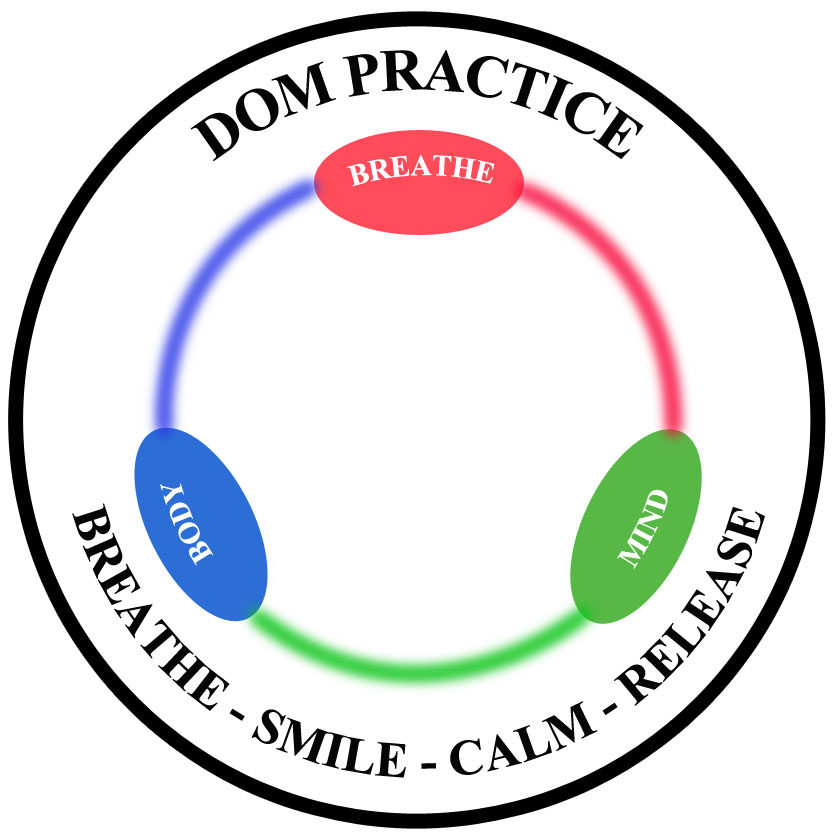Stories Relating to Anicca, Dukkha and Anatta
While residing at the Jetavana monastery, the Buddha uttered Verses (277), (278) and (279) of this book, with reference to three groups of five hundred bhikkhus each.
On Impermanence (Anicca)
Five hundred bhikkhus, after receiving their subject of meditation from the Buddha, went into the forest to practise meditation, but they made little progress. So, they returned to the Buddha to ask for another subject of meditation which would suit them better. On reflection, the Buddha found that those bhikkhus had, during the time of Kassapa Buddha, meditated on impermanence. So, he said, "Bhikkhus, all conditioned phenomena are subject to change and decay and are therefore impermanent."
At the end of the discourse those five hundred bhikkhus attained arahatship.
On Insubstantiality or Non-Self (Anatta)
The story is the same as the stories on Anicca and Dukkha. Here, the Buddha on reflection found that still another group of five hundred bhikkhus had meditated on insubstantiality or non-self (anatta). So, he said, "Bhikkhus, all khandha aggregates are insubstantial; they are not subject to one's control."
At the end of the discourse all those five hundred bhikkhus attained arahatship.
On Dukkha
The story is the same as the story on Anicca. Here, the Buddha on reflection found that another group of five hundred bhikkhus had meditated on dukkha. So, he said, "Bhikkhus, all khandha aggregates are oppressive and unsatisfactory; thus all khandhas are dukkha."
At the end of the discourse those five hundred bhikkhus attained arahatship.
Then the Buddha spoke in verse as follows:
|
Kết Một Tràng Hoa Thiền Sư Thích Nhất Hạnh |
Tích Truyện Pháp Cú Thiền viện Viên Chiếu |
Tâm Minh Ngô Tằng Giao Chuyển Dịch Thơ |
Translated by Acharya Buddharakkhita |
|
Sinh tử là cái khổ phi thường, có khả năng quán chiếu và thấy được thì đạt được tuệ giác. Nếu muốn lìa bỏ tất cả các khổ đau thì phải chuyên cần hành đạo.
Sinh tử là cái không phi thường, có khả năng quán chiếu và thấy được thì đạt tới tuệ giác. Nếu muốn lìa bỏ tất cả các khổ đau thì phải chuyên cần hành đạo. |
Tất cả hành vô thường, Với tuệ quán thấy vậy, Ðau khổ được nhàm chán, Chính con đường thanh tịnh. |
Mọi sinh vật vốn “vô thường” Trí người nếu hiểu tận tường như trên Thoát ly ngay mọi não phiền Theo đường thanh tịnh vào miền sạch trong. |
"All conditioned things are impermanent" — when one sees this with wisdom, one turns away from suffering. This is the path to purification. |
|
Tất cả pháp vô ngã, Với tuệ quán thấy vậy, Ðau khổ được nhàm chán, Chính con đường thanh tịnh. |
Mọi sinh vật có thật đâu Thảy đều “vô ngã”, “ta” nào là “ta” Trí người nếu hiểu rõ ra Thoát ly phiền não cho xa tức thời, Theo đường thanh tịnh tuyệt vời. |
"All things are not-self" — when one sees this with wisdom, one turns away from suffering. This is the path to purification. | |
|
Tất cả hành khổ đau. Với tuệ quán thấy vậy, Ðau khổ được nhàm chán, Chính con đường thanh tịnh. |
Mọi sinh vật vốn “khổ đau” Trí người sáng suốt hiểu mau điều này Não phiền sẽ thoát ly ngay Theo đường thanh tịnh tràn đầy sạch trong. |
"All conditioned things are unsatisfactory" —when one sees this with wisdom, one turns away from suffering. This is the path to purification. |
